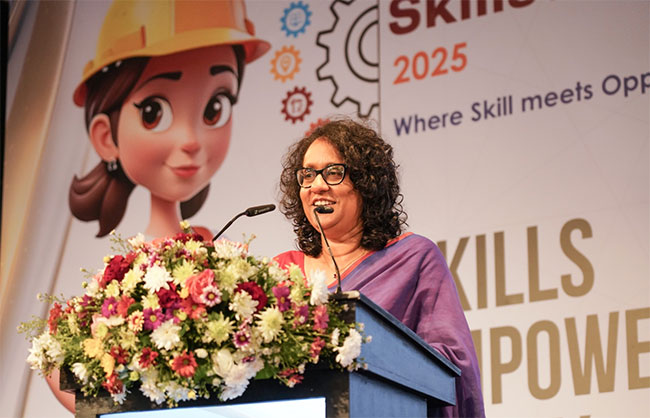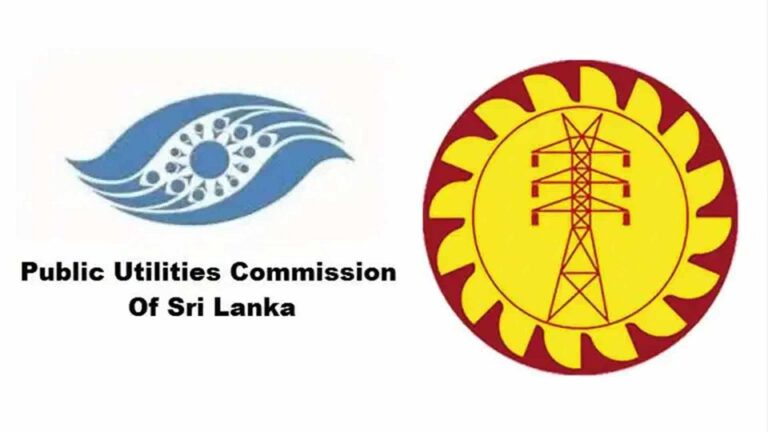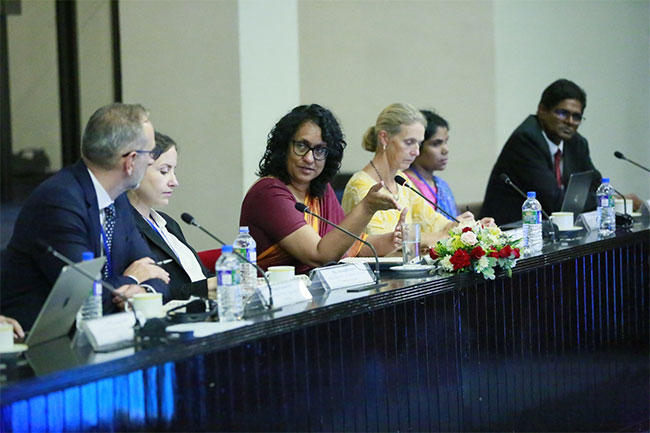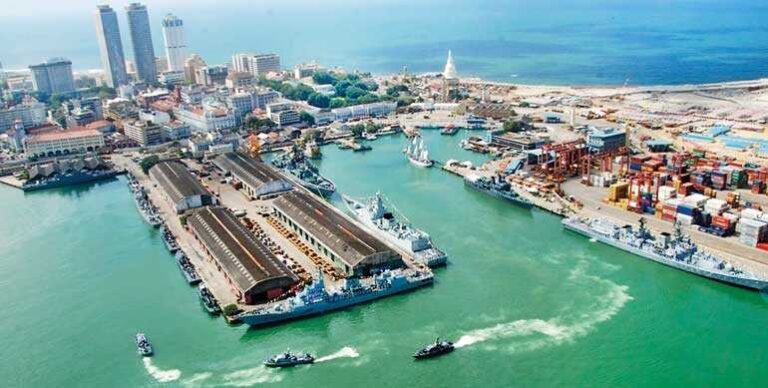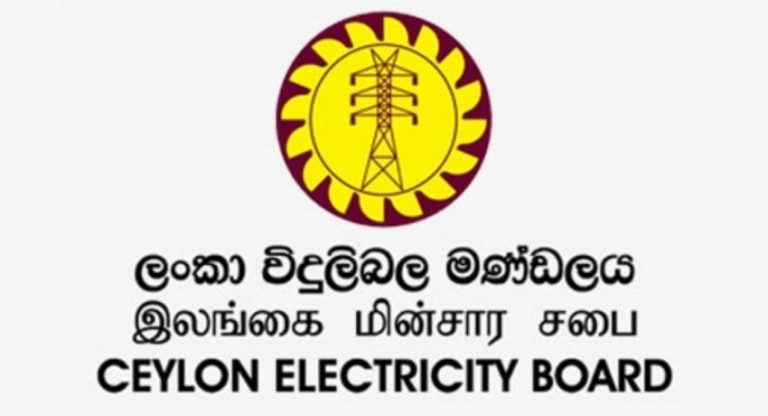October 11, Colombo (LNW): Sri Lanka has marked a significant step forward in modernising its tourism sector with the official launch of its first artificial intelligence-powered hotel project, Grand Serendib Colombo.
The ceremonial opening took place on the evening of October 10 at the Shangri-La Hotel in Colombo, bringing together a diverse audience of dignitaries, investors, and innovators.
The initiative, spearheaded by leading hospitality and development firm ABEC, coincides with the company’s 20th anniversary and symbolises a bold leap into the future of smart tourism in the region. The event was graced by Minister of Foreign Affairs, Foreign Employment and Tourism, Vijitha Herath, who officiated the launch alongside ABEC Premier Dilip K. Herath and national cricket icon and current head coach, Sanath Jayasuriya.
In his remarks, Minister Herath hailed the project as a transformative development for Sri Lanka’s travel and hospitality industry. “This is more than just a hotel,” he stated. “It represents a fusion of technology, innovation, and vision. By incorporating AI into the hospitality experience, we are aligning Sri Lanka with the global shift towards intelligent tourism solutions that cater to the expectations of modern travellers.”
The Grand Serendib Colombo is positioned as a next-generation hospitality destination, integrating artificial intelligence to personalise guest experiences, streamline services, and enhance operational efficiency. With features such as smart check-ins, AI-driven concierge systems, and predictive room service, the project aims to set new benchmarks in customer-centric travel experiences in South Asia.
The inauguration was attended by a host of distinguished guests, including Member of Parliament Dr Harsha de Silva, senior academics, diplomatic representatives, and university officials from both local and international institutions. Their presence underscored the project’s broader relevance—not just as a commercial venture, but as an example of how technological advancement can reshape key sectors of the national economy.
The hotel, once completed, is expected to attract both tech-savvy tourists and investors seeking innovation-driven destinations. It also serves as a statement of confidence in Sri Lanka’s potential as a forward-looking hub for tourism and digital transformation.
The celebration also paid tribute to ABEC’s two-decade journey, recognising its contributions to infrastructure and hospitality development in Sri Lanka. As the nation looks to revitalise its tourism sector post-crisis, ventures like Grand Serendib Colombo signal a move towards more resilient, tech-integrated economic strategies.
Sri Lanka Unveils First AI-Driven Hotel in Landmark Tourism Milestone
PM Urges Youth to Seize Opportunities at National Skills Exhibition
October 11, Colombo (LNW): Prime Minister Dr Harini Amarasuriya has called upon the younger generation to embrace the emerging opportunities before them, declaring that Sri Lanka’s future lies in the hands of its youth — and it is the duty of today’s leaders to pave the way.
Her remarks were made at the official opening of Sri Lanka Skills Expo 2025, which commenced yesterday (10) at the Temple Trees main auditorium.
Held for the third consecutive time, the Skills Expo serves as a platform to address youth unemployment and promote career pathways in modern industries. Organised jointly by the Ministry of Education, Higher Education, and Vocational Education in partnership with the Industry Sector Skills Councils, the event will continue through October 11.
The exhibition showcases educational, vocational, and entrepreneurial opportunities aimed at empowering students, recent graduates, and jobseekers with practical insight into evolving career landscapes.
In her address, Prime Minister Amarasuriya emphasised the importance of adapting the country’s education system to match the pace of global transformation. She noted that traditional career paths no longer guarantee success and highlighted the need for flexible, forward-thinking learning models that prepare students for a rapidly changing world.
“We are witnessing a pivotal moment in our education reform efforts,” she stated. “This exhibition is not just an event—it represents a shift in how we approach learning and development. It’s a chance for young people to explore diverse opportunities aligned with their strengths, interests, and aspirations.”
The Prime Minister urged students to look beyond conventional academic paths and explore vocational and technical avenues that are increasingly in demand both locally and globally. She noted that a generation facing complex challenges—driven by digital disruption, climate change, and economic restructuring—must be equipped not only with knowledge but also with adaptability, confidence, and creativity.
“This is your moment to take initiative,” she told the gathered students. “Our responsibility is to ensure the doors are open for you. Yours is to walk through them. We believe in your potential, and we are committed to ensuring you receive the tools and support needed to shape the nation’s future.”
She also underscored the collaborative nature of development, highlighting the role of parents, teachers, and policymakers in building an environment where young people can thrive and lead. The Skills Expo, she said, is designed to help students identify their own pathways while contributing to the broader national agenda.
Among the dignitaries present at the event were Minister of Industries and Entrepreneurship Development Sunil Handunnetti, Deputy Minister Chathuranga Abeysinghe, Deputy Minister of Vocational Education Nalin Hewage, Secretary to the Prime Minister Pradeep Saputhanthri, and Secretary to the Ministry of Education Nalaka Kaluwewa, along with representatives from various educational institutions and industry bodies.
The two-day exhibition features hands-on demonstrations, career guidance booths, and interactive sessions aimed at equipping youth with knowledge of emerging sectors, including green energy, digital technology, advanced manufacturing, and entrepreneurship.
The Prime Minister concluded by reaffirming the government’s commitment to investing in education and skills development, stating that the nation’s future prosperity hinges on how well it harnesses the talent and energy of its young people.
Electricity Tariff Revision Decision Set for Mid-October Amid Concerns Over Sector Reforms
October 11, Colombo (LNW): The Public Utilities Commission of Sri Lanka (PUCSL) has announced that it will deliver its final verdict on the proposed adjustments to electricity tariffs on October 14.
The decision follows a formal request by the Ceylon Electricity Board (CEB) to increase rates by 6.8 per cent.
According to PUCSL Director Jayanath Herath, the Commission is currently reviewing the proposal, which has sparked a range of responses from stakeholders across the energy and consumer sectors. The proposed increase, while modest in percentage terms, comes at a time of broader unease regarding the financial stability and structural management of the power sector.
Speaking on behalf of the Technical Engineers and Supervisors Association of the CEB, Vice President Nandana Udayakumara pointed to persistent inefficiencies and delays in implementing long-promised reforms as a key reason behind the proposed rate hike. He argued that poor execution of restructuring efforts has exacerbated operational challenges and left the utility in a vulnerable financial position.
Meanwhile, concerns have also been raised by consumer advocacy groups. The Chairman of the Electricity Consumers Association, also Nandana Udayakumara, warned that the cost burden on consumers could become even heavier in the long run, particularly in light of the potential corporatisation or privatisation of sections of the CEB. He alleged that administrative fees, such as the board levy—which currently stands at approximately Rs. 1.5 million—could balloon to nearly Rs. 10 million as a result of institutional restructuring.
UN Officials Engage in Parliamentary Dialogue to Explore Support for Electoral Reforms
October 11, Colombo (LNW): A high-level delegation from the United Nations has carried out a series of discussions with key figures in Sri Lanka’s Parliament, aimed at evaluating potential avenues for international cooperation in bolstering the country’s electoral systems.
The mission, composed of senior UN officials from the Electoral Assistance Division and other relevant branches, visited Sri Lanka at the invitation of the country’s Election Commission. Their objective was to gather perspectives from a wide spectrum of national stakeholders, and to better understand the landscape of electoral governance in the country.
Meetings were held within the Parliament premises and included consultations with Prime Minister Dr Harini Amarasuriya, alongside a group of lawmakers representing the Government. The delegation also engaged in separate talks with Opposition Leader Sajith Premadasa and opposition parliamentarians, ensuring a bipartisan approach to the discussions.
In addition, the visiting officials met with members of two key parliamentary caucuses: the Women Parliamentarians’ Caucus and the Parliamentary Caucus for Youth. These engagements reflected the mission’s broader interest in promoting inclusivity and participation in the democratic process.
The discussions covered a range of areas critical to the development of a modern and resilient electoral framework. Among the primary topics were the enhancement of electoral transparency, increased representation of women in political life, the importance of civic education, and the use of digital technologies to streamline election procedures. Addressing obstacles faced by young people and women entering the political arena was also given particular emphasis.
The UN team acknowledged the competence of Sri Lanka’s Election Commission and praised the integrity of the electoral mechanisms currently in place. The officials expressed the organisation’s readiness to extend technical guidance and support to help drive reforms that ensure elections are fair, inclusive, and secure.
The delegation included several senior figures from UN Headquarters in New York, such as Ms Michele Griffin, Director of the Electoral Assistance Division; Mr Dan Malinovich, Electoral Policy Specialist; Ms Amanda Stark, Political Affairs Officer for Asia and the Pacific; and Ms Mikyong Kim, a specialist in electoral and political affairs. Their visit forms part of the UN’s broader commitment to supporting democratic institutions around the world through capacity-building and dialogue.
Fairly heavy showers expected across island (Oct 11)
October 11, Colombo (LNW): The Meteorological Department has forecast a spell of unsettled weather across various parts of the island today, particularly in the afternoon and evening hours.
A combination of showers and thundershowers is anticipated in the Eastern, Uva, and Central provinces, as well as in parts of the Polonnaruwa and Hambantota districts, with rainfall activity likely to intensify after 1.00 p.m.
In particular, residents of the Uva province may experience fairly heavy rainfall, with some areas expected to receive over 50 millimetres. While the central and eastern regions are expected to bear the brunt of this weather system, isolated thundershowers may also develop in other parts of the country later in the day.
The morning hours could see showers developing along the western and southern coastal belts. In addition, misty conditions are forecast for certain locations within the Sabaragamuwa, Central, and Uva provinces during the early part of the day, potentially affecting visibility and travel.
Authorities are urging the public to remain vigilant and to take necessary safety measures, particularly during periods of thunderstorm activity. Localised gusty winds and lightning strikes are possible during these storms, posing risks to both individuals and property.
Breaking News: Venezuelan Politician Maria Corina Machado Awarded 2025 Nobel Peace Prize
Venezuelan opposition leader Maria Corina Machado has been awarded the 2025 Nobel Peace Prize, recognized for her relentless efforts to defend democracy and human rights in Venezuela.
Announcing the award in Oslo, the Nobel Committee hailed Machado as “one of the most extraordinary examples of courage in Latin America in recent times.”
Committee chair Jørgen Watne Frydnes emphasized that democratic activism in Venezuela remains dangerous, yet Machado has stood unwaveringly for free and fair elections for more than two decades, describing her advocacy as “a choice of ballots over bullets.”
“The Nobel Peace Prize for 2025 goes to a woman who keeps the flame of democracy going, amidst a growing darkness,” Frydnes declared.
Machado, a long-standing critic of Venezuela’s authoritarian government, has become a unifying figure in the country’s opposition movement. The committee praised her “tireless work promoting democratic rights for the people of Venezuela” and her leadership in pursuing “a just and peaceful transition from dictatorship to democracy.”
The award also comes at a time when democratic values face increasing threats globally. The committee stressed that Machado embodies the core of democracy—defending principles of popular rule even when disagreements remain.
“At a time when democracy is under threat, it is more important than ever to defend this common ground,” the chairman added.
The announcement followed speculation surrounding other high-profile candidates. Notably, U.S. President Donald Trump had mounted a public campaign for the prize, though nominations closed at the beginning of his second term earlier this year.
With this honor, Machado joins a prestigious list of Nobel laureates and becomes a powerful symbol of resistance and hope for Venezuela’s democratic future.
Ban the Bag? Lessons from Britain—and Sri Lanka’s Reality Check
By Roger Srivasan
Introduction
I was born in the Northern part of Sri Lanka, but my childhood and much of my life unfolded in the United Kingdom. For half a century I have lived in a society where the environment has steadily been pushed higher up the public agenda. I remember vividly the day the UK government, following Wales, Northern Ireland, and Scotland, decided to charge for plastic carrier bags. What seemed like a small 5-pence nudge at the till quickly transformed public behaviour. Within a few years, plastic bags on UK beaches had fallen by 80 per cent. Now Sri Lanka is embarking on a similar journey, banning single-use carrier bags. The instinct is right.
The question is: can we replicate the British success story, or will our own economic and social realities blunt the impact?
What Britain Did Right
The UK’s approach was gradual and carefully staged. Wales led the way in October 2011 with a 5p levy.
Northern Ireland followed in 2013, Scotland in 2014, and England in 2015. By 2021, the charge doubled to 10p and was extended to all retailers. The results were dramatic: fewer plastic bags in circulation, cleaner beaches, and a shift in mindset. Why did it work so smoothly? Three factors mattered:
1. Cars and convenience – most shoppers drove, storing “bags for life” in their car boots.
2. Alternatives at scale – supermarkets offered reusable options, reminders at tills, and visible messaging.
3. Affluence and awareness– the public could absorb a small fee and embraced the environmental argument. In short, Britain harnessed small incentives to achieve a big cultural change.
Europe: Levy or Ban
The EU acted through Directive 2015/720, requiring member states to cut consumption of lightweight carrier bags. Some chose levies, others bans. Ireland pioneered the levy in 2002, slashing usage almost overnight.
France phased in bans in 2016–2017. Germany introduced a nationwide ban on lightweight bags from 2022.
The lesson? Whether by fee or outright prohibition, the direction is unmistakable: fewer disposables, more re-use.
The Anglosphere Experience
Across the English-speaking world, the pattern is varied but unmistakable. – United States: With no federal law, individual states took the lead. California, New York, New Jersey, Washington, Oregon, Maine, Vermont, Connecticut, Delaware, Colorado, and Rhode Island now restrict or ban bags. California goes further: from 2026 all plastic grocery bags, even thick “reusables,” will be outlawed. – Canada: The federal government introduced a ban in 2022, now under legal challenge. A court stay keeps the rules in effect while the appeal proceeds. – Australia: Every state and territory has banned lightweight plastic bags. Some, like South Australia, are widening restrictions to cover more single-use plastics.
Why Sri Lanka Is Different
Sri Lanka faces unique obstacles. The average household here does not mirror the British suburban shopper with a car boot full of sturdy bags. Many rely on buses, trains, three-wheelers, or walking. Carrying groceries in heavy reusable bags is a far greater inconvenience. Economic constraints deepen the dilemma. A reusable cloth or jute bag costs more than a flimsy polythene one. For lower-income families, even small costs bite hard. Meanwhile, our retail landscape is fragmented: modern supermarkets, wet markets, and thousands of kades. Enforcing a uniform ban across this patchwork is daunting.
The Case for Action
Yet the environmental argument is overwhelming:
– Urban flooding: Blocked drains choked with polythene make monsoon deluges more destructive.
– Health: Burning discarded plastic releases toxic fumes in residential areas.
– Tourism and coasts: Marine litter damages fisheries and our international image. We cannot afford inaction. But we must tailor solutions to our realities.
A Sri Lankan Way Forward
If Sri Lanka is to succeed, the ban cannot stand alone. It must be paired with innovation and practicality:
1.Start with a charge, then escalate – follow the UK’s path, giving people time to adapt.
2. Subsidise reusable bags – make cloth or jute carriers cheap, or free at the start, especially for low-income households.
3. Baglibraries and rentals – supermarkets and kades could lend bags for a deposit, refundable on return.
4.Foldable pocket bags – sell compact cloth bags at bus stands and railway kiosks.
5. Market-specific solutions– for wet markets, reusable crates or woven sacks rented out per trip.
6. Unified enforcement – clear, simple rules for supermarkets and kades to avoid confusion or unfair penalties.
Conclusion: Worthy, but Adapted
The ban on plastic bags is a worthy initiative. It signals responsibility, protects our environment, and reminds us that small choices carry large consequences. But Sri Lanka must adapt the model. We cannot simply import the UK approach and expect identical results. In Britain, affluence, car culture, and retail centralisation smoothed the path. Here, success will depend on education, affordability, and localised alternatives. If we design the transition wisely, Sri Lanka can reap the same environmental rewards without burdening its people. The lesson is clear: ban the bag, but bend the policy to Sri Lankan realities.
Sidebar: Key Global Milestones
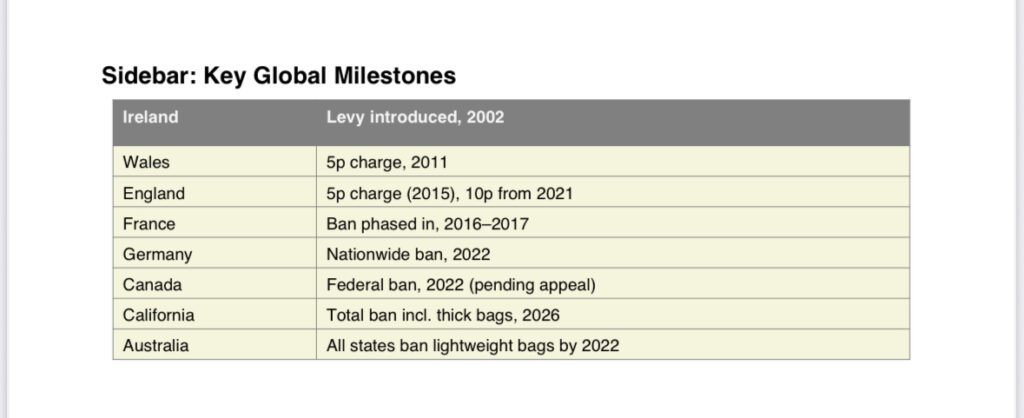
Dhammika part sells ComBank stake for Rs. 5.5 b
Business leader Dhammika Perera yesterday part sold his stake in Commercial Bank for Rs. 5.5 billion.
The market saw 26.55 million voting shares of Commercial Bank done at Rs. 195 per share via 39 crossings. Overall, Commercial Bank saw 29 million shares traded for Rs. 5.68 billion, accounting for 43% of a whopping
Rs. 13.3 billion turnover.
Commercial Bank voting share closed the day at Rs. 203.25, up by 3% or Rs. 6.25.
The stake in Commercial Bank is not strategic but is part of Dhammika’s trading portfolio.
As at end June, Dhammika held 39,226,489 million voting shares amounting to 2.5% stake and was the 11th largest shareholder. End of last year Dhammika was the 8th largest shareholder with 3.66% stake amounting to 55.2 million voting shares.
Dhammika’s strategic banking sector interests are Sampath Bank and Pan Asia Bank.
DAILY FT
Colombo Port Achieves Record Profit in 2025 amid Strategic Expansion
The Port of Colombo has reported a record net profit of Rs. 32.2 billion for the first eight months of 2025, marking a 71% increase from Rs. 18.9 billion during the same period in 2024. This surge surpasses the projected Rs. 21 billion target by Rs. 11 billion, underscoring the port’s robust performance amid ongoing infrastructure developments and enhanced operational efficiencies.
According to the Sri Lanka Ports Authority (SLPA), the profit growth is attributed to several key factors, including a 5.7% year-on-year increase in container throughput, improved cost management, and the completion of major infrastructure projects such as the East Container Terminal (ECT) and the Jaya Container Terminal.
These developments have significantly boosted the port’s capacity and operational capabilities.The ECT, with an annual capacity of 2.4 million TEUs, is now operational, contributing to the port’s enhanced efficiency. Phase two of the ECT is expected to commence operations by the end of the year, further augmenting capacity.
Additionally, the fifth phase of the Jaya Container Terminal is on schedule for completion within 2025, which will further increase capacity.
In terms of container traffic, the port handled 5.43 million TEUs from January to August 2025, up from 5.14 million TEUs during the same period in 2024. Transshipment volumes rose by 3.8% to 4.35 million TEUs, while domestic container movements saw a significant jump of 13.7% to 858,324 TEUs.
Looking ahead, the SLPA plans to utilize the profits to implement strategic initiatives aimed at positioning the Colombo Port as a leading regional transshipment hub. These initiatives include further expansion of terminal facilities, adoption of advanced technologies, and enhancement of logistics connectivity to meet the growing demand in global trade.
The SLPA’s proactive approach in infrastructure development and operational optimization has not only bolstered the port’s financial performance but also reinforced its strategic importance in the global maritime industry. As the port continues to expand and modernize, it is poised to play a pivotal role in enhancing Sri Lanka’s position as a key player in regional and international trade.
CEB’s Proposed 6.8% Tariff Hike: Justified Reform or Unwarranted Burden?
Sri Lanka’s state-run Ceylon Electricity Board (CEB) has proposed a 6.8% increase in electricity tariffs, citing the need to align with a cost-reflective pricing formula agreed upon with the International Monetary Fund (IMF). This proposal, currently under review by the Public Utilities Commission of Sri Lanka (PUCSL), has sparked debate among stakeholders.
Financial Performance amidst Proposed Hike
Despite the tariff hike proposal, CEB’s recent financial performance raises questions about the necessity of such an increase. In the second quarter of 2025, the CEB reported a net profit of LKR 5.31 billion, a significant improvement from the LKR 34.54 billion profit in the same period the previous year. This turnaround is attributed to a combination of factors, including tariff adjustments and operational efficiencies.
However, the first quarter of 2025 saw a net loss of LKR 16.93 billion, primarily due to reduced revenues and increased costs associated with thermal energy generation. This fluctuation underscores the challenges faced by the CEB in balancing operational costs and revenue eneration.
Cost-Reflective Pricing and IMF Conditions
The IMF has emphasized the importance of implementing cost-reflective electricity pricing to eliminate ad-hoc hikes and shield consumers from inefficiencies. The proposed 6.8% increase is in line with this recommendation, aiming to ensure that electricity tariffs accurately reflect the cost of production and distribution.
Public Consultation and Stakeholder Concerns
The PUCSL has conducted public consultations across various provinces to gather feedback on the proposed tariff revision. Approximately 500 individuals participated in these sessions, expressing concerns about the potential impact of the tariff increase on consumers, particularly those in lower-income brackets.
Conclusion
While the IMF’s push for cost-reflective pricing aims to promote transparency and financial sustainability, the CEB’s recent profitability raises questions about the immediate need for a tariff hike. Stakeholders urge a comprehensive evaluation of the CEB’s financial health and operational efficiencies before implementing further increases in electricity tariffs. The PUCSL’s upcoming decision will be crucial in balancing the objectives of financial sustainability and consumer protection.


